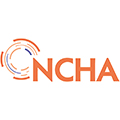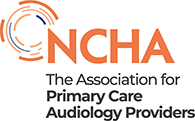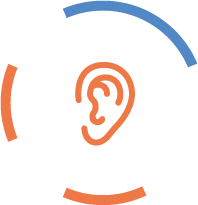27 April 2020
Covid-19 update: audiology – 27 April 2020
At the NCHA we are supporting members seven days a week throughout the Covid-19 crisis. If you need us, please email or call us as usual.
In this update:
- Official advice and guidance
- PPE update
- Clinical update
- Employer Q&A and ongoing support
- Financial support update
- Other sector updates
|
1. Official advice and guidance Official advice is updated regularly and notified through member updates. The links below will enable you to keep up to date between NCHA updates.
Government and public health advice
UK infection prevention and control guidance UK guidance on infection prevention and control (IPC) for Covid-19 can be accessed here. This new pdf version of the complete set of guidance was added on Friday evening.
Health service advice
People at increased risk and the extremely vulnerable There are two different high-risk groups for Covid-19. Those at an increased risk of severe illness and the extremely vulnerable who are at the greatest risk of severe illness.
Action on Hearing Loss’s most recent Covid-19 position statement (20 April) explains that most people aged 70 and older, and therefore many audiology patients, are in the increased risk group. They are encouraged to follow strict social distancing measures. The NHS has contacted people in the extremely vulnerable group (shielded patients) separately and with specific advice. |
|
2. PPE update
Guidelines Members have been in touch to explain there is some inconsistent PPE advice online. As set out in our 4 April update you should follow and keep up-to-date with official PPE guidance for the UK. Official PPE guidance still notes that “we are currently experiencing sustained transmission across the UK”. You should therefore use Table 4 in the PPE guidance as instructed. Although Table 2 states it is for primary and outpatient care settings, the context shows how this applies where there are possible or confirmed cases of Covid-19. These patients should not be seen in audiology clinics but referred to appropriate Covid-19 pathways where clinically necessary to do so – e.g. if they warrant an urgent/emergency referral to ENT (see section 3). So, Table 4 not Table 2 would currently apply in most community audiology settings. It is also important to remember that PPE is in addition to:
PPE does not replace these core principles of infection control. For example:
Also, any healthcare delivered face-to-face should be clinically necessary, taking account of the risk of Covid-19, attending an appointment and the specific procedure(s) for each individual patient. We are aware that some guidance signposts audiologists to the incorrect guide for using PPE. Please note, most audiologists do not perform aerosol generating procedures (AGPs). You should therefore refer to this guidance for non-AGPs. If you do perform AGPs then refer to this guidance for AGPs.
PPE supplies Members have informed us about vendors offering masks and other PPE for sale that might be non-compliant. Other primary care professionals have also reported a risk of fraud linked to PPE supplies, including a letter about face masks claiming to be from the Department of Health and Social Care (DHSC). We recommend members use the Cabinet Office and DHSC Technical Specifications for PPE guidance, as these specify the technical and regulatory standards for PPE. Although this guidance was written for suppliers/manufacturers, it should help you check the PPE you are purchasing is fit for purpose. Please note, if you do not have access to the appropriate PPE, then we would advise audiologists not to conduct face-to-face consultations at a distance of less than 2m. Throughout the pandemic, patient, staff and public safety are the main priorities. NCHA members who are therefore concerned about sector specific PPE issues can email us at [email protected]. We are analysing all feedback and taking appropriate steps to help support and ensure compliance with official infection prevention and control guidance. |
|
3. Clinical update
Third sector advice Action on Hearing Loss has created helpful patient resource on Covid-19. The charity also updated its position statement on 20 April. We recommend members read and keep up to date with these resources.
NHS guidance – England Please note, on 15 April NHS England-Improvement published Novel coronavirus (COVID-19) standard operating procedure: Community health services. This applies to all audiology services in England operating within the NHS Standard Contract.
Ear surgery and wax/FB management Please note the following regarding management of ear surgery and wax and foreign body (FB) management during the pandemic.
You might also find the following resources helpful:
To improve accessibility, you should be aware of:
Clinical records during this time should be marked as ‘Covid-19’ so that in the event of complaint or claim in the future it is clear why procedures were modified during this time. Finally, the Covid-19 audiology services during the pandemic guidance is due to be reviewed on 30 April. As soon as it is updated we will issue a member alert. |
|
4. Employer Q&A and ongoing support – 30 April 2pm to 2.30pm As a NCHA member, you can join a Q&A webinar for employers on Thursday 30 April 2pm to 2.30pm, which will guide you through Covid-19 related staffing and safety challenges. Learn more and register. Members who need employment law advice should continue to email [email protected]. |
|
5. Finance support update
Support finder tool – UK The government has launched a new ‘support finder’ tool to help determine what financial support is available during the coronavirus pandemic. Use the tool. You might also find the following summaries helpful:
Coronavirus job retention scheme (CJRS) – UK We notified members as soon as the CJRS application process opened on Monday 20 April and are pleased to hear that some of you have already started to receive payments. HMRC has now also added an online CJRS calculator and a new webinar about how to make a CJRS claim. DWP confirmed on 24 April that workers planning to take paid parental or adoption leave will be entitled to pay based on their usual earnings (not a furloughed pay rate). Read more.
Covid-19 self-employment income support scheme (SEISS) – UK HMRC says it aims to contact those eligible to make a SEISS claim by mid-May. HMRC will host a SEISS webinar on Monday 27 April 1.45pm to 2.34 pm. Register for this event.
Coronavirus large business interruption loans scheme (CLBILS) – UK Organisations with a turnover of more than £500 million are now also eligible for CLBILS. Learn more. |
|
6. Other sector updates
Routine hearing care This remains suspended across the UK for patients with no symptoms that indicate an essential or urgent appointment is required (See section 1 and 2 above). |
|
Covid-19 training opportunities If you would like to learn more about Covid-19 you can take part in the free World Health Organization (WHO) course for healthcare professionals. Learn more. |
|
Covid-19 testing England Please note, testing has been extended in England to include all essential workers and members of their households who are showing symptoms of coronavirus. Learn more. |
|
Charities challenge prime minister on accessible coronavirus information Action on Hearing Loss and other leading charities have written to the prime minister, Boris Johnson, to express “significant concerns about the accessibility of public health information in relation to Covid-19 and the significant risk this poses to disabled people and the nation as a whole”. The letter goes on to say that over 4.5 million people have more moderate and severe hearing loss and sight loss and that they are missing out on vital public health information at this critical time. Also, this group is more likely to be over-represented in those who are at risk of becoming severely ill as a result of Covid-19. They have urged the prime minister to act now to ensure information is accessible in order to reduce risks. Read the full letter. |
|
NHS urges public to get care when they need it – England On Saturday, the NHS in England launched a new campaign to encourage the public to act on the urgent care and treatment they need. The campaign will include digital adverts, posters and social media posts. It will be rolled out next week to “persuade people to contact their GP or the 111 service if they have urgent care needs – or 999 in emergencies – and to attend hospital if they are told they should”. The NHS has also confirmed that in the coming weeks it will start to encourage people to use other vital services as they usually would where it is safe to do so. This follows the 7 April call to action by the Academy of Medical Royal Colleges for patients to act on serious health conditions during the pandemic. |

Press enquiries
Media enquiries should be directed to [email protected] or call 020 7298 5110.
We are happy to put you in touch with our expert policy advisers who can comment on a variety of issues.
You can also follow us on Twitter and LinkedIn.

 Your hearing and aural health
Your hearing and aural health  Commissioners and Policymakers
Commissioners and Policymakers  Member support and guidance
Member support and guidance News and views
News and views
 Hearing map
Hearing map
